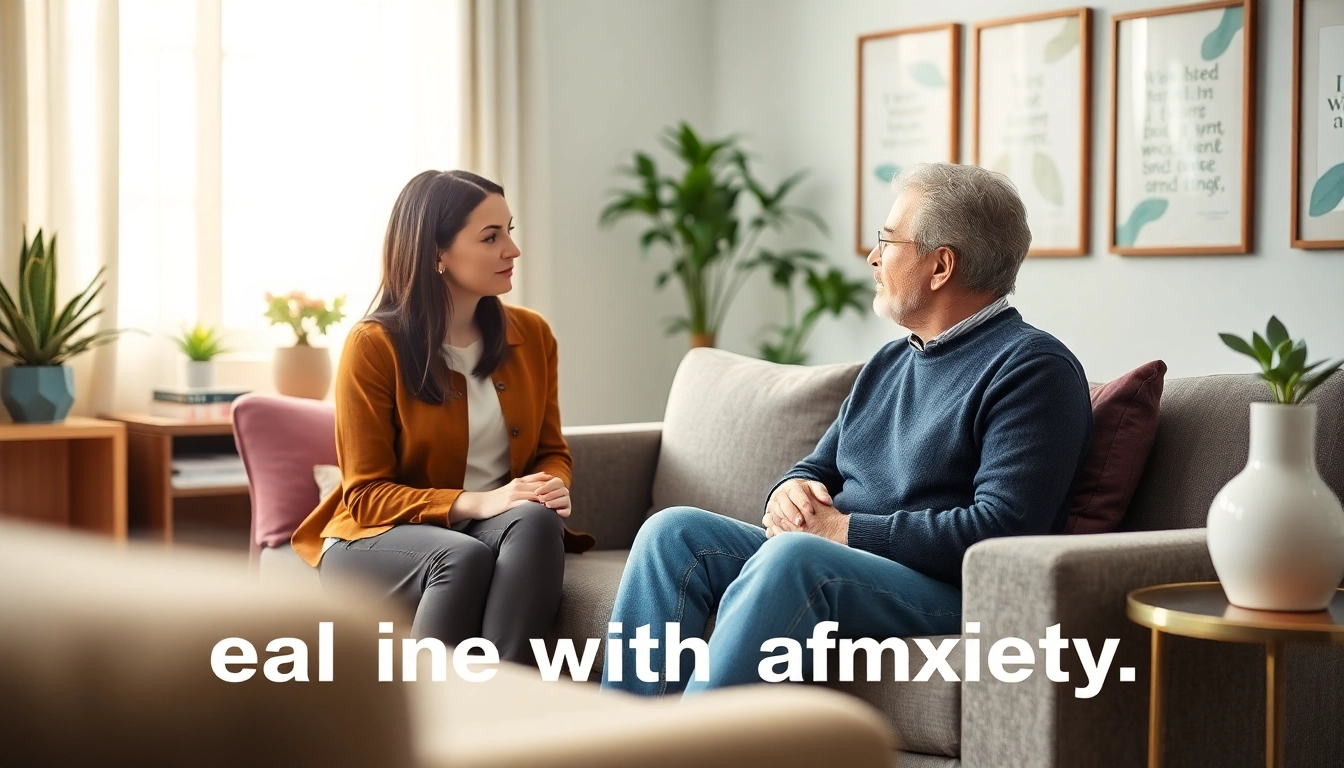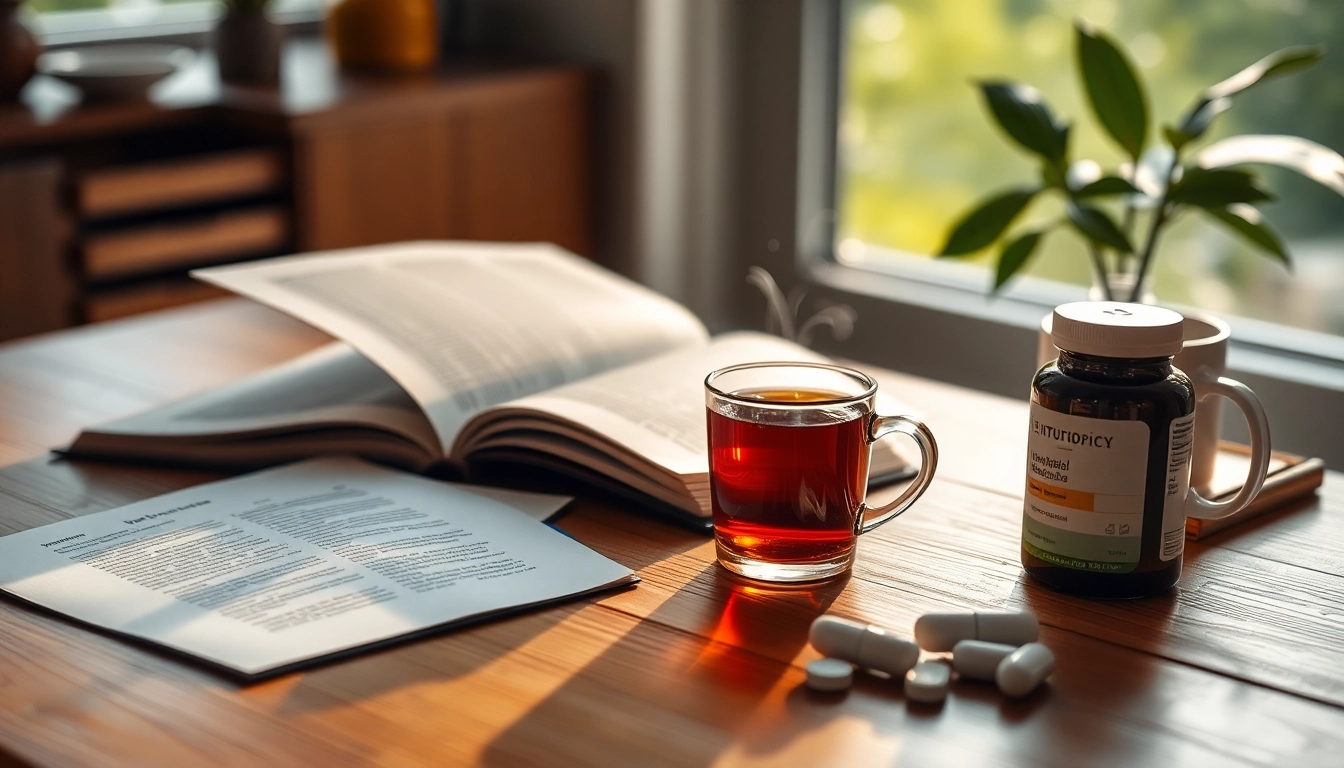Understanding Anxiety and Its Impact
Anxiety is a complex emotional response that affects millions of people around the world. It can manifest in various ways and can greatly impact one’s quality of life. In this comprehensive guide, we will explore the nature of anxiety, its symptoms, practical techniques for coping, and long-term strategies for maintaining mental wellness. For those seeking comprehensive support in dealing with anxiety, this resource will serve as a valuable tool.
What is Anxiety?
Anxiety is defined as a feeling of apprehension or fear that is often related to the anticipation of a future threat. This response is natural and can even be beneficial in certain situations, triggering the body’s fight or flight response. However, for some individuals, anxiety becomes excessive and chronic, leading to impaired functioning in daily life. The National Institute of Mental Health recognizes several anxiety disorders, including generalized anxiety disorder (GAD), social anxiety disorder, and panic disorder, each with its own set of symptoms and challenges.
The Physical and Emotional Effects of Anxiety
Anxiety does not solely reside in the mind; it has profound physical and emotional effects on the body. Physically, anxiety triggers the release of stress hormones, leading to responses such as increased heart rate, muscle tension, and digestive issues. Emotionally, it can lead to feelings of fear, unrest, irritability, and difficulty concentrating. Long-term anxiety can contribute to mental health conditions like depression, sleep disorders, and substance abuse.
Common Triggers for Anxiety
Anxiety can be triggered by a variety of stressors, including personal experiences, environmental factors, and even genetics. Common triggers include:
- Life Changes: Events such as moving, changing jobs, or transitioning to a new phase of life
- Stressful Events: Situations like financial troubles, relationship issues, or chronic illness
- Work-related Stress: High-pressure jobs or workplace conflicts
- Social Situations: Fear of judgment or embarrassment in social settings
Recognizing Symptoms of Anxiety
Identifying the signs and symptoms of anxiety is crucial for managing it effectively. By understanding your body’s responses to anxiety, you can take steps to mitigate its effects.
Identifying Emotional Symptoms
Emotional symptoms often serve as the first indicators of anxiety. Individuals might experience:
- Persistent worry or fear
- Feelings of impending doom
- Difficulty concentrating or making decisions
- Restlessness or feeling on edge
Physical Symptoms to Watch For
Physical symptoms can vary, but common alerts include:
- Increased heart rate
- Shortness of breath
- Muscle tension
- Fatigue or insomnia
- Headaches or stomach issues
How Anxiety Differs from Stress
While anxiety and stress share some similarities, they are not the same. Stress is typically a response to an external trigger, while anxiety may persist even when the trigger is removed. Moreover, anxiety can be more persistent and pervasive, often requiring different coping strategies and treatment approaches.
Practical Techniques for Dealing with Anxiety
Managing anxiety effectively involves utilizing a variety of techniques. Here are some practical strategies to consider:
Relaxation Techniques and Their Benefits
Relaxation techniques can significantly alleviate the symptoms of anxiety. These methods include:
- Meditation: Gently focusing the mind can promote relaxation and clarity.
- Deep Breathing: Techniques like diaphragmatic breathing can calm the body and mind.
- Progressive Muscle Relaxation: This method involves tensing and then relaxing different muscle groups sequentially.
Research supports that regular practice of these techniques can lead to reduced levels of anxiety and improved overall well-being.
Grounding Techniques for Immediate Relief
Grounding techniques help individuals stay connected to the present moment, serving as effective tools during acute anxiety episodes. Common grounding techniques include:
- The 5-4-3-2-1 technique, which involves identifying five things you can see, four things you can touch, three things you can hear, two things you can smell, and one thing you can taste.
- Carrying a grounding object, such as a small stone or charm, to focus on during moments of anxiety.
Implementing these techniques promptly can mitigate anxiety symptoms and foster a sense of control.
Exercise: A Powerful Tool for Managing Anxiety
Physical activity has been shown to have a significant impact on mental health. Regular exercise increases the production of endorphins and other chemicals that elevate mood. Activities such as:
- Aerobic Exercise: This includes running, cycling, or swimming, which can reduce anxiety levels.
- Yoga: This combines physical movement with mindfulness, proving especially effective for individuals with anxiety.
Experts recommend aiming for at least 30 minutes of moderate exercise most days of the week to harness its full benefits against anxiety.
Professional Help for Anxiety Management
While self-help strategies are beneficial, many find professional guidance necessary for managing anxiety effectively. Below are considerations for when and how to seek help.
When to Seek Professional Guidance
Recognizing when self-help strategies are insufficient is crucial. Individuals should consider seeking professional help when:
- Anxiety symptoms interfere with daily activities or responsibilities.
- They experience severe emotional distress.
- They have physical symptoms that persist despite trying self-management techniques.
Therapies for Dealing with Anxiety
Therapists employ various therapeutic approaches to treat anxiety, including:
- Cognitive Behavioral Therapy (CBT): A widely used method that helps individuals identify and modify negative thought patterns associated with anxiety.
- Exposure Therapy: Gradual exposure to the source of anxiety can reduce its power over time.
- Mindfulness-Based Cognitive Therapy: This combines mindfulness strategies with cognitive therapy techniques to enhance emotional regulation.
Medication Options and Considerations
In some cases, medication may be necessary to manage anxiety disorders effectively. Common types of medication include:
- Selective Serotonin Reuptake Inhibitors (SSRIs): Often prescribed for anxiety to help regulate mood.
- Anti-Anxiety Medications: These can offer immediate relief but may also come with dependency risks.
It is crucial for individuals to discuss potential benefits and side effects with a healthcare provider to determine the best course of action.
Long-Term Strategies to Maintain Mental Wellness
While immediate relief strategies are important, long-term practices are essential for ongoing mental wellness and anxiety management.
The Role of Lifestyle Changes
Healthy lifestyle choices can significantly impact anxiety symptoms. Consider incorporating the following changes:
- Nutrition: Maintain a balanced diet rich in vitamins and minerals.
- Sleep: Prioritize sufficient and quality sleep to support mental health.
- Limit Alcohol and Caffeine: Both can exacerbate anxiety symptoms.
Building a Support System
A strong support system can provide comfort and understanding during challenging times. Building this network may involve:
- Talking to friends and family about your experiences.
- Joining support groups with individuals facing similar challenges.
- Seeking out mental health professionals to provide expert guidance.
Social connections can foster resilience and decrease feelings of isolation.
Measuring Progress in Managing Anxiety
Monitoring progress can help in identifying what works and what needs adjustment. Consider keeping a journal to track symptoms, triggers, and effective coping strategies. Regular self-assessments can also help clarify goals and celebrate improvements, reinforcing positive changes in behavior and thought processes.



